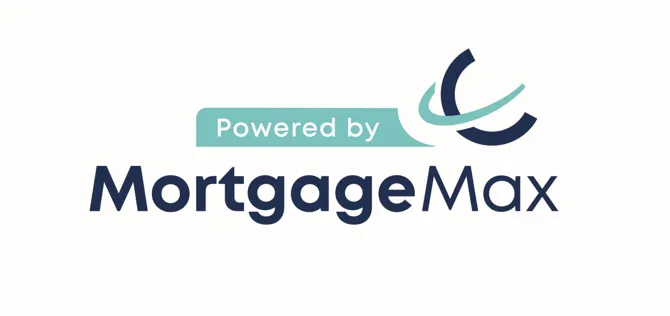
Buying Property in South Africa While Living Abroad: A Journey Made Simpler
There’s a moment that sneaks up on many of us living abroad, when the idea of owning a home back in South Africa becomes more than just a daydream.
Maybe it’s a longing for sunsets over Table Mountain, or a desire to invest in a market you understand. Maybe you’re planning for retirement, or simply looking for a lifestyle shift. Whatever the motivation, the next thought is usually the same:
“How would I even go about doing this from overseas?”
For expats and international buyers, the idea of owning property in South Africa is as exciting as it is daunting. The opportunities are real — stunning locations, high rental yields, lifestyle appeal — but so are the complexities. The truth is, buying remotely means placing a lot of trust in people on the ground. That’s why having the right local experts, ones who understand not only the system but your personal journey, can turn an overwhelming process into an empowering one.
The First Hurdle: How Do You Find the Right Property from Abroad?
It’s one thing to scroll through listings online, another entirely to understand the nuance of different suburbs, price trends, or whether that sea view is actually as dreamy as the photos suggest.
And then there’s the worry: what if you fall in love with something, only to lose it before your offer even reaches the seller?
That’s exactly why buyers’ agents exist, and why they’ve become indispensable for overseas buyers. A great buyer’s agent doesn’t just send you listings. They act as your eyes and ears on the ground, tapping into networks that include developers, estate agents, and private sellers. In high-demand markets like Cape Town, this often means you get early access to properties before they even hit the open market.
But more than that, a buyer’s agent listens. They learn about your goals — whether you’re planning to Airbnb the property while you’re abroad, eventually retire there, or create a lockup-and-go base to escape European winters. They’ll guide you towards areas that match your needs, flag legal considerations, and steer you away from common pitfalls.
“When I moved from the UK to South Africa, I was surprised to find no one working on behalf of the buyer. As a buying agent, I act solely for you – offering access to off-market homes, expert guidance in an unfamiliar market, and a trusted network built over 20 years in global property. I’ve been in your shoes – it can be overwhelming, and I’d love to help you navigate it with confidence.”
— Sophie Gamborg, founder and CEO of Sophie Gamborg Global Property
Financing: Can You Get a Mortgage as a Foreigner or Expat?
The good news? Yes, you can.
The not-so-simple news? It depends on your residency status, and you’ll need someone who knows how to navigate the maze of paperwork, lending criteria, and Reserve Bank regulations.
Let’s start with the basics:
Non-residents (without a South African ID or permanent residency):
Banks typically offer a mortgage covering up to 50% of the property’s purchase price. You’ll need to fund the other half yourself, and the money must be introduced into South Africa through a registered bank.Self-employed?
While that usually raises red flags for the banks, there are ways to structure your application — especially with the right support.South African citizens living abroad:
Things are more flexible. Most local banks will consider loans of up to 80% of the property’s value, provided you have an active employment contract and a track record of income (usually six months of payslips).Temporary residents:
On your own, expect the same 50% cap as non-residents. But apply jointly with a South African ID holder, and the loan-to-value ratio may increase to 75%.Refugees:
While not all banks will consider these applications, some do — and may even offer loans on the same terms as citizens. That said, it’s best to plan for around 80% financing just to be realistic.
This is where a Bond Originator becomes invaluable. A bond originator is a person who specialises in helping clients abroad secure home finance through South African banks. They don’t work for the bank — they work for you. That means negotiating on your behalf, finding the most competitive rate, and ensuring your application is positioned for success. They can even run a pre-assessment to give you a clear idea of your borrowing power before you begin your search.
The Costs You Might Not Expect – But Need to Know
Every buyer, local or international, needs to prepare for the costs that come after the offer is accepted. These aren’t hidden fees; they’re just often overlooked in the excitement of the search.
When you buy a property in South Africa, you’ll pay a deposit (usually 10% or more), which is safely held in a trust account by the transferring attorney. Any interest earned during this time is returned to you after the property officially transfers — typically about 90 days from sale to close.
Then there are:
Transfer duties (a tax on the transaction)
Conveyancing fees (paid to the attorney managing the legal side)
Bond registration costs (if you’re taking a mortgage)
For properties under R1.21 million, you won’t pay any transfer duty. But as the price climbs, so does the rate — and it’s based on a sliding scale.
The other fees — legal, admin, registration — vary by property price but can range from R7,000 to R45,000 or more.
It’s important to budget for these costs upfront. They’re not included in the purchase price, and most are payable within two weeks of signing the sale agreement.
The Role of SARB: What Foreign Buyers Need to Know
Every foreign property purchase in South Africa is subject to oversight from the South African Reserve Bank (SARB). This isn’t a barrier — it’s a framework to protect both buyers and the country’s financial system.
Foreign buyers must:
Open a non-resident bank account
Route all payments through it
Ensure the initial deposit and any other funds come from overseas with proper documentation
Later, when it comes time to sell the property and repatriate profits, having a clean financial paper trail is essential.
SARB approval is also necessary when applying for a mortgage — but this is typically handled by the bank or bond originator. Another reason why working with someone experienced in cross-border property finance can save you a world of frustration.
Making the Process Feel Human
Perhaps the most underrated part of this entire journey is how human it really is.
You’re not just buying a house.
You’re making a life decision — sometimes for your family, sometimes for your future.
You need people who understand what’s at stake, who know what’s possible, and who care about more than just closing a deal.


